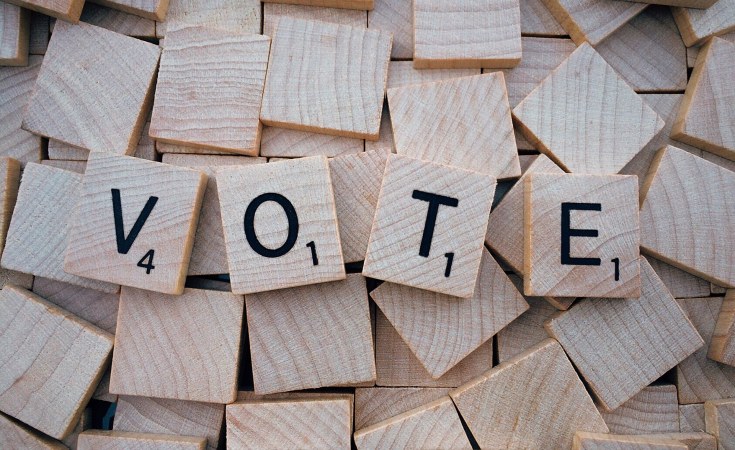There are always disparate feelings of apprehension each time we head towards elections in Nigeria because of violence and electoral malpractices and its concomitant effects. These have continued to question the credibility of our elections. To the glory of God, the president and relevant authorities of the Federal Government of Nigeria have engaged some measures to address the unwholesome acts and practices jeopardizing our elections.
On the matters of electoral malpractices, the administration of President Muhammadu Buhari took a bold step in signing into law, the Electoral Amendment Act Bill (2022) in order to bequeath the country with a more credible electoral process and advance our democratic principles. The law is to guarantee the constitutional rights of the electorates to vote and their votes to count on one hand, and to reduce electoral frauds on the other hand. The stride is a giant one. With this law, INEC is authorised to use electronic devices such as the Bimodal Voters Accreditation System (BVAS), Voters Enrolment Device (VED), and Results Viewing Portal (RVP) among others for enhanced accreditation, collation of results and some activities in the general conduct of elections.
Having achieved this, collectively, we must advance certain approaches to concretely secure the process, protect lives of the electorates and others, especially at voting points by checkmating electoral violence before, during and after elections.
Buhari, while unveiling the critical operational assets procured by the police, has charged the Nigeria Police and other security agencies to ensure they adequately provide a secured atmosphere for the success of the 2023 elections, and I think not just for the periods of elections only but always to secure lives and facilities.
Violence is devastating in every concept of its definitions, and it has unfortunately been characterising our political contests in all contexts of our national configuration. The consequences are better imagined. Loss of precious human lives, destruction of property and facilities - both public and private, including huge financial losses and economic retrogression are noticeably often as the repercussions. These destructions and losses occurred in every election that has so far been conducted in the country; the exactitude of the records of death, maiming and any other damage is uncertain even though some have been captured by some individuals and groups for the purpose of documentation.
Many factors may account for electoral violence in the country, however, the one that matters most is the over ambitiousness of dubious politicians and individuals whose acts undermine our commonness, national security and interest. Some politicians in the country see election as a life-and-death affair and are ready to do anything to be enthroned even at the expense of the lives of the citizens they aspire to govern. Worse of all, persons seeking political positions go as far as arming our youths with weapons just to takeout perceived 'enemies' who could possibly rock their boats, yet many of us believe that power comes from God.
The unguarded statements and ineffectual criticisms of various flag-bearers of some political parties and their supporters remained one of the major concerns as well; they habitually fuel unnecessary anger and instil sentiments that generate hatred and then eclipse the political atmosphere with tension inducing anxiety and fear of insecurity. What are dominant in our political life as a result of the foregoing are primordial sentiments, ethnic and regional loyalty in place of national interest.
Painfully, the youths who ought to champion the cause of preservation of the lives of their fellow Nigerians and uphold the sovereignty that defines not just our political entity but ensures the future of the country which remains our only and common homeland allow themselves to be used as ready tools in the hands of some of the dubious politicians to unleash mayhem during voting, killing people, destroying facilities and snatching ballot boxes.
Expectantly, by our socio-political convolutions, all manners of characters are bound to exist - the assemblages of the good, the bad and the ugly. However, what I know for sure is that the excesses of the bad and the ugly can always be tamed with sound arrangements within the confines of the law governing our social contract as a people.
Crime in definitive terms will always occur in a location within a geographical sphere, land, water or space, the more reason we earnestly require geospatial technologies to effectively deal with our challenges. Polling units and electoral wards can effectively be secured through proactive policing.
For effective proactive policing of our communities and society at large beyond election periods and always, strong collaboration between the Independent National Electoral Commission (INEC) and the police with other relevant authority such as the Office of the Surveyor General of the Federation (OSGoF) is encouraged. It is a fact that the well mapped countries of the world are the most developed and secured.
Our states and their respective local government areas can be well surveyed and maps showing roads for vehicles, footpaths and other access routes to communities produced. With such geospatial data, police personnel and other security agents can be strategically positioned to secure polling centres and the communities hence such arrangements will negate planned invasions or operations by criminal elements. Surveying and Mapping can augment proactive policing of the Nigerian State; with surveying and mapping, authorities can acquire geospatial intelligence that will place us in position of strength hence decisions and steps taken will be based on empirical data and certainty. There is an urgent need to provide adequate funds for the production of a large-scale solution base-map of the country.
Michael is the Head of Press and Public Relations, Office of the Surveyor General of the Federation, Abuja


